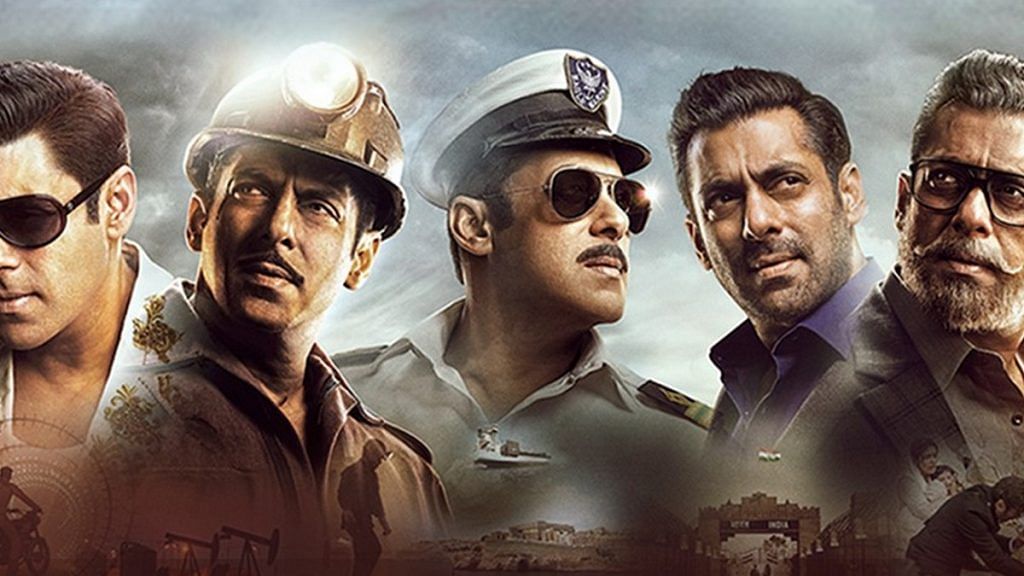Salman Khan’s next film is called Kabhi Eid Kabhi Diwali and Aamir Khan’s next release is the official Indian remake of Forrest Gump – Lal Singh Chaddha.
Much has been said about the silence of the Khans – Shah Rukh, Salman and Aamir – in Narendra Modi’s India. The demand for them to speak out has never been louder than in the last few weeks with countrywide protests against the Citizenship (Amendment) Act and National Register of Citizens, and the violence against students in Jawaharlal Nehru University, Jamia Millia Islamia and Aligarh Muslim University.
But the Khans of Bollywood have always spoken out through their films, if not in words.
Also read: Deepika Padukone showed you can rattle power with silence too – if you just stand up
Putting your money where your mouth is
Presidential candidate Bob Dole once called Forrest Gump the embodiment of the American Dream. Its official Indian remake, Lal Singh Chaddha, starring Aamir Khan, is sure to be the epitome of the idea of India, where a fictional Gump will be inserted into historical footage with famous men and women. Will Jawaharlal Nehru stand in for President John F. Kennedy, will the 1971 war replace the Vietnam War in which Gump fights, and will the Indian Ocean tsunami substitute Hurricane Carmen? Only the filmmakers know for sure, but it does show a vast historical sweep that always makes the ruling BJP government uncomfortable, because it questions their role in the freedom movement.
But it is also the only way, perhaps, for the Khans of Bollywood to join the polarising debate on the soul of India currently in progress.
Last week, for instance, Salman Khan announced his new film, Kabhi Eid Kabhi Diwali, to be written and produced by Sajid Nadiadwala. It will be released in 2020. Salman has already had his Forrest Gump moment in Bharat (2019) where the protagonist’s story ran parallel to that of India’s, ending in an attempt to unite families from across the border who had been divided during Partition. “Tujh mein poora Bharat hai beta,” his father tells Bharat. It is a continuation of the subtle politics that Salman has discovered in movies with collaborators such as Kabir Khan and Ali Abbas Zafar who wear their nationalism unapologetically and proudly.
So, whether it is playing the Hanuman-devotee son of an RSS worker in Kabir Khan’s Bajrangi Bhaijaan (2015) who wants to take a little girl back to her home in Pakistan, or a spy for R&AW in Ali Abbas Zafar’s Tiger Zinda Hai (2017) who marries a Pakistani spy and reads Bhagat Singh’s story to their son at bedtime, Salman Khan is telling his audience where his heart lies.
Also read: Shah Rukh, Aamir and Salman now starring in ‘Silence of the Khans’ under Modi rule
It can’t be easy. Every time any of the three Khans speak their minds on an issue of national importance, they are trolled or, worse, boycotts are demanded of their movies because their response doesn’t suit the self-appointed crusaders of patriotism. When Aamir Khan said in a conversation with The Indian Express that he felt intolerance was on the rise in India, there was a backlash not merely from within the film industry but also from Snapdeal, the brand he was endorsing at the time. He was also dropped from the government’s Incredible India campaign.
It was the same with Shah Rukh Khan, who faced unprecedented toxicity on his 50th birthday when he said religious intolerance would take India to the dark ages. Yogi Adityanath, now Uttar Pradesh chief minister, even accused him of speaking the language of Hafeez Saeed.
Deepika Padukone has faced the same poison recently with calls for a boycott of her newly released film Chhapaak for having the courage to visit Jawaharlal Nehru University and stand shoulder to shoulder with the students who were attacked by masked goons on the campus. Padukone received support from many in Bollywood, but had to face personal attacks for her gesture, including from BJP ministers.
Little wonder then that the Khans now choose to speak out with their work, rather than their words.
Also read: Of all Bollywood Khans, Shah Rukh’s life & career were built on the Nehruvian idea of India
Lagaan to Swades
Take Shah Rukh Khan’s movies, for instance. His Chak De! (2007) dialogue is now the embodiment of what Team India should be – “Mujhe states ke naam na sunai dete hain na dikhai dete hain … sirf ek mulk ka naam sunai deta hai, I-N-D-I-A. (I can’t hear the names of any state, only the name of one country, India)”. In Swades (2004), he is a NASA scientist who returns home to save his village because “mere aasuyon ka swad … mere mann ka namak hi samajhta hai (only the salt of my heart can understand the taste of my tears).”
Ditto with Aamir Khan, whose films have upheld the essence of India from Lagaan (2001) to Dangal (2016), where he works day and night to train his daughters to win for India. Yet, critics would rather notice the so-called bashing of Shiva in PK (2014) than the message of patriotism in a movie as flawed as Thugs of Hindostan (2018) (“Hindustani aadmi ka imaan koi paan supari nahi ki khaya aur thook diya … dushman ki gardan pakad leta hai yeh imaan … aur tab tak nahi chhodta jab tak ki dushman ke pran na nikal jaaye” – An Indian man’s honour is not like tobacco that you can chew it and spit it out, it grabs the enemy by the neck until he dies).
But then in today’s environment of instant justice, it would be too much, perhaps, to expect the call-out community to listen, read and then remember.
The author is a senior journalist. Views are personal.
